There is a great on www.elitefts.com this week, i have pull some highlights, but check out the whole thing if you get a chance. Here's the link.
Here’s the scenario…
You’ve been anointed the “Strength Czar” and have been given the power over this entire industry. If you tell the world, “You have to eat dung to get strong,” everyone will believe you.
With this power, you have the opportunity to supply each coach or trainer with three things that will make them better, improve the industry, and help athletes. These three things can be anything you want—physical objects, mental characteristics, or physical characteristics—and you can use any combination of the three.
So what three things would you give people in this industry to make them better? Anything is fair game.
Mark McLaughlin (Performance Training Center, Milwaukee, Oregon): I would ban organized year-round sports for children ages 6–13. Physical education would be provided in all schools five days per week and would follow the PASM model.
Tom Deebel: Find a few people better than you and hang with them. I would make everyone get a formal education and learn biology, nutrition, kinesiology, anatomy, and strength training theory and practice.
Jim Wendler: I think a coach has to have competed at a high level in sport. The coach has to know everything that the athlete is going through, and the best way to do this is to experience it for yourself.
Travis Mash: A coach would have to participate in a mandatory weekend course with a different strength coach every six months, and the strength coach would have to be chosen from a master list that I would provide (e.g. Louie Simmons, Pavel Tsatsouline, Martin Rooney, etc.).
X’s and O’s are great when you’re trying to impress a group of college kids and convince them to pay you ridiculous amounts of their parent’s money. You can teach them about tempo, ancient Chinese diets that will up your GH levels, and give blood tests that will tell you exactly what to eat in order to operate at superhuman levels. But when it’s all said and done, lift properly, lift explosively, and lift heavier as time goes on. This isn’t rocket science. Just learn to try new things, and keep what works. If you can’t bench 315 lbs, you can’t teach me to bench 600 lbs. If you can’t run a 4.9 40-yard dash, how are you going to teach me to run a 4.3 40-yard dash? If your vertical is 20 inches, find a new job.
Julia Ladewski (University at Buffalo, Buffalo, New York): Learn from other coaches. Know your athletes. Over the years, I’ve realized that the more I know my athletes individually as people, the better response I get from them. Take the time to have casual conversations and get to know them.
Read or learn something every day whether it’s an article, a new exercise, or something else. I always find something when I’m going through old articles or stuff from other coaches.
C.J. Murphy (Total Performance Sports, Everett, Massachusetts): Intern and mentor with a good coach. The coach doesn’t have to be well known or a leader in the industry. Everyone needs to be exposed to a wide variety of training. Every coach or trainer must be a competitive athlete or had been at some point in their career.
Matt Brand (Lafayette College, Easton, Pennsylvania): Athletes are responsible for their own success. Every trainer and strength coach has to understand (as do the sport coaches who expect you to work miracles) that you can have the best plan and everything on target, but much of the responsibility falls on the athlete. If their minds and motivation are lacking, it can be very difficult to get any results.
Every strength coach and trainer needs to have experienced the training himself. A coach has to have experience failing at lifts and know what a lift feels like. This will help him coach better and get into the athletes’ minds. Also, by training, he will earn the respect of his athletes.
Nick Zostautas (Northwestern University, Evanston, Illinois): You must have an athletic background. You must have practical knowledge. You can read all the books that you want and attend all the seminars in the world, but none of it compares to getting out there and actually coaching.
Kevin Deweese (Morehead State University, Morehead, Kentucky): All coaches or trainers must have competed and trained for a competitive sport. This is essential if you want to know how training and competing coincide.
Tim Kontos (Virginia Commonwealth University, Richmond, VA): You have to have competed in some sort of strength sport. This could be powerlifting, Olympic lifting, bodybuilding, arm wrestling. It really doesn’t matter. This is what you’re coaching so you need to experience strength.
I would also enforce some kind of CEUs. You have to continue to educate yourself by watching other coaches, reading, and attending seminars.
Friday, May 18, 2007
Subscribe to:
Post Comments (Atom)


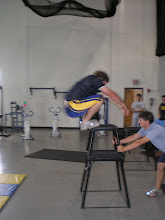
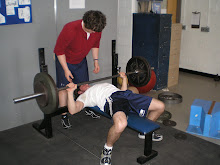
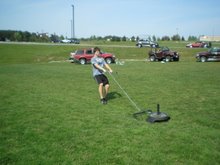
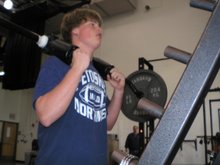
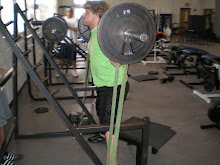
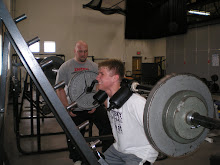
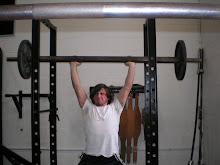

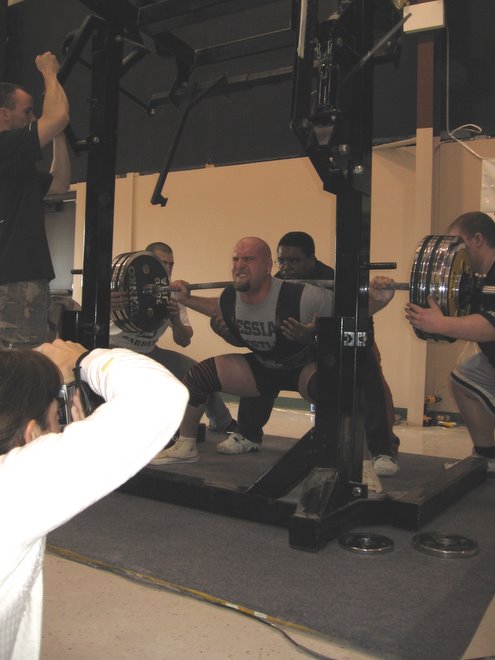
No comments:
Post a Comment